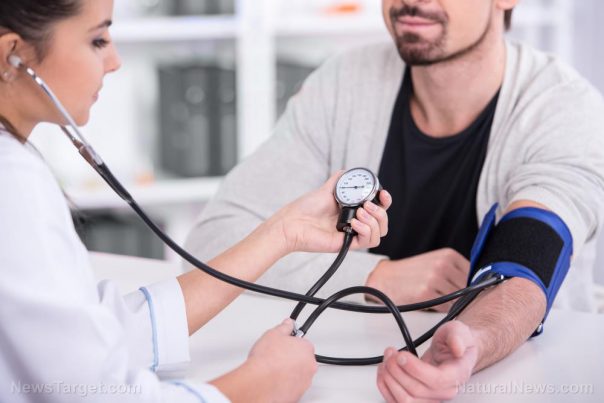
Norvasc – uses, health risks, and side effects at NaturalPedia.com
Friday, February 15, 2019 by Ralph Flores
http://www.naturalpedia.com/norvasc-uses-health-risks-and-side-effects-at-naturalpedia-com.html

Norvasc (Generic name: amlodipine) is a drug prescribed to widen blood vessels and improve blood flow.
The drug is known as a calcium channel blocker. It is prescribed to people with angina, hypertension, and coronary heart disease.
People who have experienced congestive heart failure or those with liver diseases should seek the advice of a healthcare professional before taking Norvasc. In addition, drinking alcohol while taking Norvasc can make its side effects worse.

Known health risks or side effects of Norvasc
People who have pre-existing liver disease or aortic stenosis, as well as women who are pregnant or breastfeeding, should seek the advice of a healthcare professional before taking Norvasc.
The following side effects are experienced after taking Norvasc:
- Lethargy
- Dizziness and nausea
- Stomach pain
- Feeling flushed
People who may be allergic to the drug should seek immediate medical attention when hives or swelling develop, or he experiences difficulty breathing.
In certain cases, taking Norvasc worsens his angina or results in a heart attack. Seek immediate medical attention if the following occurs:
- Chest pain or pressure
- Pain that spreads to the shoulder or jaw
- Nausea and sweating
List of organs that might be affected by Norvasc
The adverse effects of Norvasc mainly impact the cardiovascular system.
Food items or nutrients that have similar effects to Norvasc
Certain food items and nutrients are known to have similar effects to Norvasc. These include:
- Leafy greens. The potassium found in some leafy greens helps remove excess sodium from the body, which, in turn, lowers blood pressure.
- Berries. These sweet and tart treats are filled with flavonoids that help in preventing hypertension. Well-known berries include blueberries, raspberries, and strawberries.
- Red beets. Beets contain nitric oxide, which opens up blood vessels and lowers blood pressure. According to a study, consuming beets can lower a person’s blood pressure in 24 hours, thanks to the nitrates present in the plant.
- Yogurt. The fermented favorite is a great source of calcium and fat, both essential elements in reducing a person’s blood pressure.
- Bananas. Similar to leafy greens, bananas provide the body with the potassium needed to lower a person’s blood pressure.
- Oatmeal. Rolled oats contain copious amounts of fiber while having little fat and sodium — a perfect combination for lowering a person’s blood pressure.
Alternative treatments to Norvasc
For the most part, lifestyle plays an important part in keeping a person’s blood pressure in check. Engaging in a more active lifestyle can greatly improve blood pressure without the need for prescription drugs and their adverse side effects. It is advised to start with a non-strenuous workout, but one that makes a person feel “out of breath,” for at least 30 minutes a day.
In addition, a healthy diet — one that is low in carbohydrates, and bad fats and cholesterol — is beneficial for reducing stress, especially for the heart. Cutting back on alcohol and sodium (salt) is another step in maintaining heart health. Alcohol, in particular, puts pressure on the heart muscle and impairs the body’s filtration of toxins.
Where to learn more
- Pfizer faces $1 billion charge in bogus patent dispute over blood pressure medication Norvasc
- Viagra Now Being Increasingly Used as a Recreational Drug By Younger Men: Is Pfizer Responsible?
- Legal drugs kill more people than illegal ones: Research shows prescription drugs are the 3rd leading cause of death
- Republicans may elect Pfizer lobbyist to head RNC
- Pfizer-sponsored study at N.Y.U medical school gave child abuse sufferers experimental drug and then completely abandoned them
Summary
Norvasc is a calcium channel blocker used to widen blood vessels and improve blood flow.
Norvasc is prescribed to people with angina, hypertension, and coronary heart disease.
People who have congestive heart failure or liver diseases should consult a healthcare professional before taking Norvasc.
Norvasc use can impact the cardiovascular system.
Sources include:
Tagged Under: Tags: Norvasc





